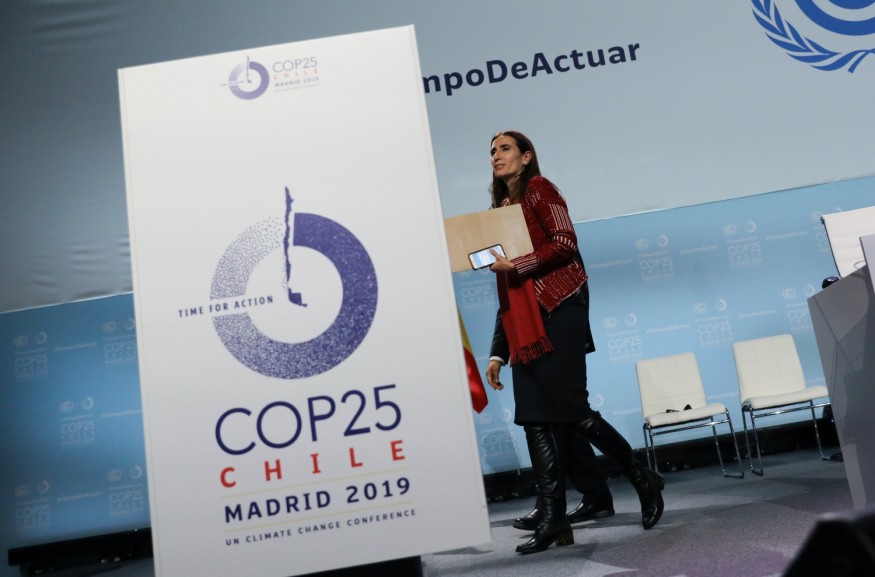
The recent climate summit in Madrid did not fall; however, the summit indeed failed by almost any measure. The result became a deadlock and a dodge.
The 12-day talks extended two days into overtime but still punted the carbon market problem to next year's COP26 in Glasgow.
So what went wrong? At least five factors contributed to the failure of COP25.
1. Amateur hour
To an uncomfortable degree, the outcome of a UN climate summit-where more than 190 nations must sign off on every decision-depends on the host country's savvy and ability.
Carolina Schmidt, Chile's environment minister, used the slug after the conference was transferred at the last minute to Madrid due to massive protests on the streets of Santiago.
The veteran observers, from day one, expressed their concern that Schmidt was not up to the job as Chile's environment minister mishandled a request from the African negotiating bloc mushroomed into a diplomatic incident.
An "irresponsibly weak Chilean [administration]" made Brazil and Saudi Arabia to push agendas destined to derail the talks, said Greenpeace International executive director Jennifer Morgan.
2. Fox in the henhouse
Pointing fingers within the UN climate bubble is considered unwise since everyone understands what causes climate change. Even the Paris Agreement turns a blind eye, too. Nowhere in its provisions does one see the words natural gas, fossil fuels, oil, and carbon dioxide.
"We need to [coordinate] with [various stakeholders and factors]," UN Climate executive secretary Patricia Espinosa told AFP when questioned whether it's time to eliminate such lobbyists from the room.
Espinosa added there is no way the world would achieve the transformation without the energy industry - including oil and gas. However, the stakeholders' incongruity to a life-and-death struggle to wean the world from their products became more challenging to ignore.
3. The Trump effect
Climate change advocates pinned down the negative impacts of the world's largest market and second biggest carbon polluter pulling out of the Paris deal from the moment Trump was elected on Day Two of COP22 in Marrakesh.
"There are one or two [entities] that [appear] hell-bent on [assuring that] any [requests for rolling back] ambition, action, and environmental integrity," said Grenada's environment minister Simon Stiell.
According to Li Shuo of Greenpeace East Asia, the US withdrawal has also crippled the alliance that produced the landmark Paris treaty on climate change.
Shuo told AFP that the US-China-EU climate tricycle had a wheel removed off by Trump. "Going into 2020, it is [essential] for the [two remaining wheels] to roll in sync," Shuo added.
4. China at the wheel
Beijing holds the fate of the planet in its hands when it comes to climate change. China's carbon footprint had tripled in two decades from 3.2 to 10 billion tonnes in 2018.
According to the Global Carbon Project, China holds for 29 percent of global carbon dioxide emissions - more than India, Russia, and the United States combined.
Stabilizing China's carbon dioxide output by 2030 is the core commitment of the country's voluntary carbon-cutting plan, annexed to the Paris treaty.
Minister Stiell, according to The New Indian Express, said that the country's failure to update its plans "[show] a lack of [purpose] that also undermines ours."
Beijing has been coy about its intentions as they hinted at a revised target ahead of COP26. However, China dug in its heels during the Madrid meeting. The country - backed by India - invoked the belief that wealthy nations must lead in discussing climate change, calling out their failure to deliver on promises made.
"Ambition of Parties is [ranked] first and foremost by the implementation of its [responsibilities]," said China, India, Brazil, and South Africa in a joint statement.
5. Spitting into the wind
The most daunting headwind binding UN climate talks is rising economic retrenchment, patriotism, and populism at the expense of the multilateralism.
Sebastien Treyer of the IDDRI think tank in Paris said the stalemate over carbon markets is a manifestation of a more general polarisation and lack of cooperation among countries.
Street protests against the rise in cost-of-living in countries such as Chile, Colombia, Ecuador, Egypt, France, and others in 2019 showed reluctance to invest in a low-carbon future.
Stephane Hallegatte of the World Bank noted that the situation in the countries highlighted how "susceptible" communities are to change in the price of essential commodities such as food, energy, and transport.
"This is the [context where] most countries [pledged to stabilize] climate change," Hallegatte said.
© 2026 NatureWorldNews.com All rights reserved. Do not reproduce without permission.





